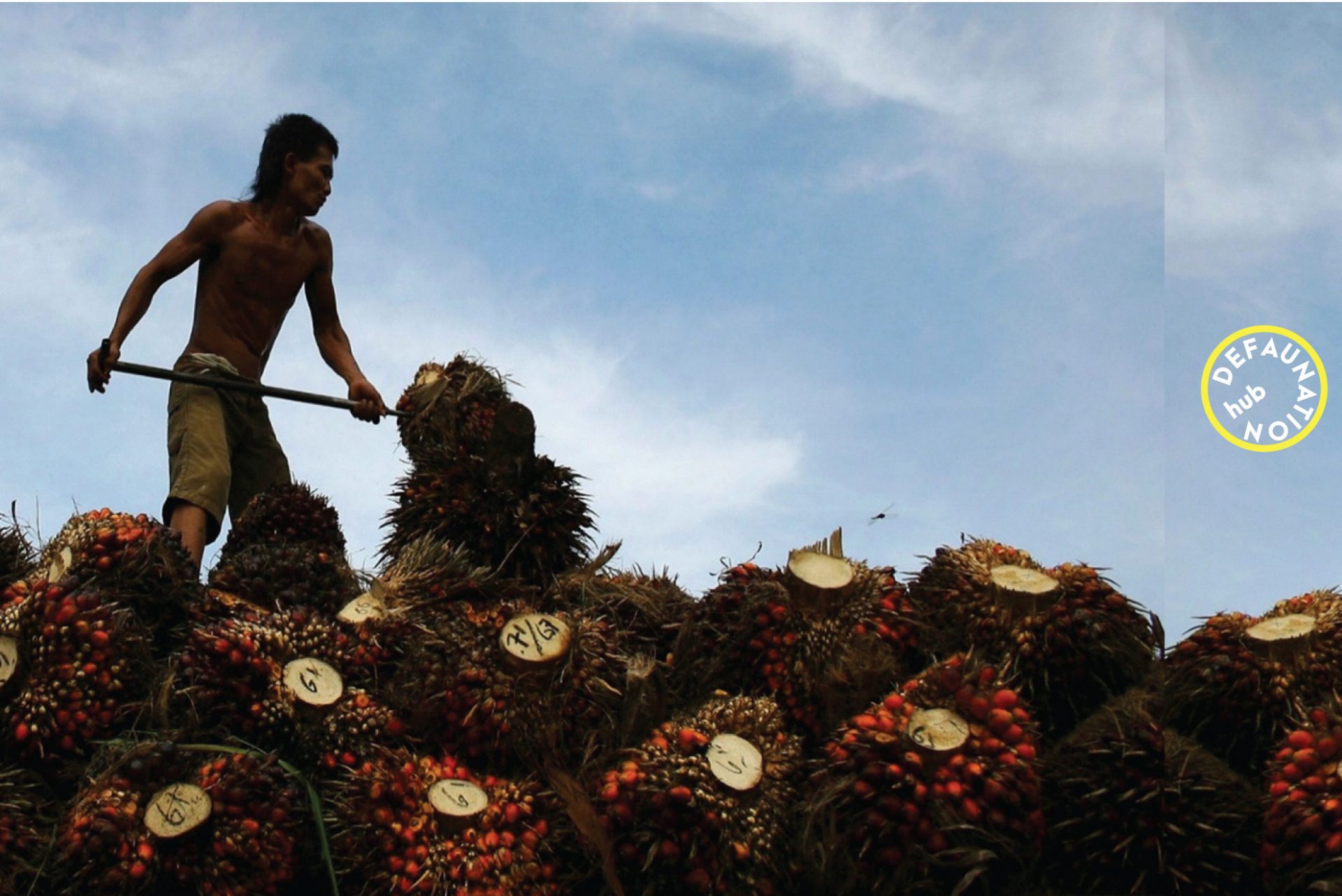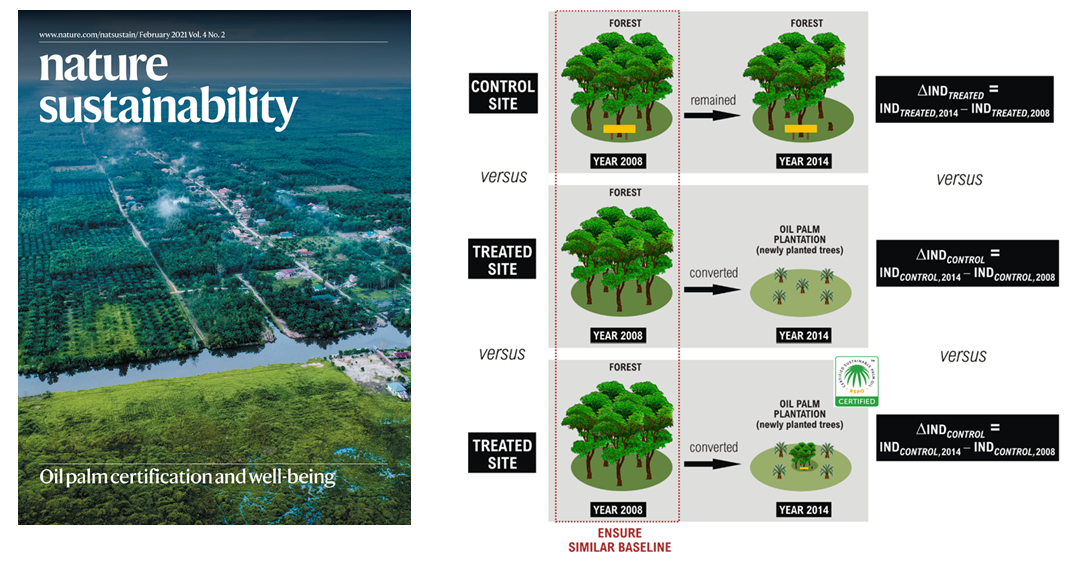With additional funds from the Global Challenges Research Fund via the University of Kent, Hub researchers have contributed to an impact evaluation of Indonesia’s oil palm industry on human well-being. Unlike many past studies, our assessment of spatial census data looked beyond financial measures of prosperity, and explored how oil palm had affected multiple poverty dimensions over c. 20 years.
The research, led by Dr Truly Santika, showed that against a backdrop of improved living conditions in Kalimantan, wellbeing gains were slower in villages with oil palm compared to those without. Fundamental to understanding these patterns was the baseline livelihood conditions of villages. Oil palm brought economic benefit mainly to villages with past exposure to plantation management and the market economy. For villages with primarily subsistence livelihoods, the economic benefit was short-lived and the socioecological welfare deteriorated.
In a groundbreaking analysis published in Nature Sustainability, we have shown that these patterns hold true across the major oil palm growing region of Indonesia, and also apply to certification. We compared poverty across 36,311 villages between 2000 and 2018, tracking changes from before oil palm plantations were first established to several years after they were certified by the Roundtable for Sustainable Palm Oil. In Kalimantan, Sumatra and Papua certification was associated with reduced poverty in villages with primarily market-based livelihoods, but not with those in which subsistence livelihoods were dominant before switching to oil palm.
Oil palm and certification can bring many benefits to villages, but this is not always the case. Plantation development in certain village contexts may require additional resources to ensure certification’s socioeconomic objectives are realised.

